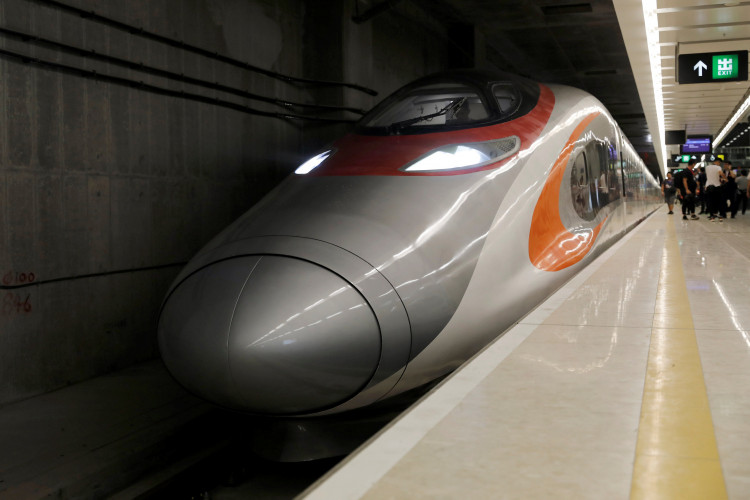The high-speed rail link set to transport travelers from China to Hong Kong and vice versa begins operation on Sept. 24 just in time for the Mid-Autumn Festival and the Golden Week Holiday. The $11 billion bullet train, with a speed of up to 125 miles per hour, is expected to bring passengers from mainland China to Hong Kong in less than 20 minutes.
Specifically, the train connects travelers to 44 Chinese destinations. Travelers can reach Shenzhen at an estimated time of 19 minutes, Guangzhou in 47 minutes, Shanghai in 8 hours and 17 minutes, and Beijing in 8 hours and 56 minutes. The latter could cost $158.40 which is about the same cost a tourist will play if he buys a ticket from a budget airline. The bullet train, however, is faster than airplane by fifteen minutes.
The South China Morning Post reported that the high-speed rail link transported more than 75,000 passengers during its launch with a total of 350,000 tickets sold. There were more than 42,000 people from mainland China who traveled to Hong Kong while an estimated 33,000 people traveled vice versa.
The high-speed railway link is designed to take as much as 80,000 passengers on a daily basis as a hundred trains are scheduled to depart daily as well. The goal behind the bullet train is businesses to have accessible connectivity to China's Pearl River Delta and the Greater Bay Area, including Macau and nine cities in Guangdong province.
Ultimately, through the bullet train, these districts could contribute to China's economic and technological development the way the bay areas of San Francisco and Tokyo has delivered results to their respective countries. The Greater Bay Area, which is home to nearly 68 million individuals, has a combined GDP of about $1 trillion.
For Hong Kong dwellers, the bullet train will be their fastest mode of transportation to reach Shenzhen where big banks such as JPMorgan Chase and Morgan Stanley are located.
Aside from economic and tourism benefits of the high-speed train, commuters will also find convenience in the new joint checkpoint arrangement where travel documents will be checked and processed by officials from China and Hong Kong. This canceled the need for commuters to pass through border control when they arrived at a Chinese destination.
Ho Kah Nai, a doctor who spoke with The Wall Street Journal, said people in the medical profession like him can now offer their services across the borders since commuting is more comfortable. He said he used to travel to the mainland once or twice a year on a plane. Now, he can go as frequent as his patients need him to be.





